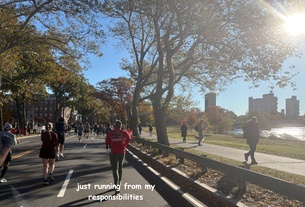JFMK School of Government
Let Them Play
A pointed few in the media have defended Armstrong on the basis of his assertion that “if they gave Tour de France trophies to people who were drug-free, they would have to find their winners in grade school.” While I am sympathetic to that point, this is not meant to be an apologia for Armstrong. It is fair to be annoyed and angered at the duplicity of Armstrong. Yet, American citizens should be more disturbed at the actions of his primary foe in this saga, the United States Anti-Doping and, by extension, the United States government.
An Unfortunate Power Grab
Fans of Washington dramaturgy surely remember the crisis that befell Washington last summer, when Congress threatened not to raise the debt ceiling, the limit on the amount of bonds the government can issue to finance its liabilities. The debt ceiling is back in the news, as the president has criticized Congress’s ability to wield such a powerful weapon. As we saw last year, the majority of the House has demonstrated an inclination to refuse to raise the ceiling, unless they reach a budgetary bargain consisting of tax and spending cuts. The president has expressed frustration with this aspect of governance and has proposed ridding the ability to control the debt ceiling from Congress’ arsenal. Such a scheme reflects brazen presidential overreach and would be deleterious to the American process of compromise.
Kerry for Secretary of State
Political journalists have reported a shortlist for each of the positions in the second Obama administration’s Cabinet. For Secretary of State, the two frontrunners are United Nations Ambassador Susan E. Rice and Massachusetts Senator John Kerry. While both of these individuals are talented diplomats with impressive résumés, Senator Kerry stands out as the best choice to represent American interests abroad.
In GOP We Trust
I distinctly remember a moment in sixth grade when I took interest in a Kerry-Edwards ’04 sticker on my history teacher’s desk. I found the paraphernalia so perplexing that I immediately went home and asked my parents a question I will never forget: “How could my teacher possibly be Catholic and a Democrat?”
The Insensibility of Early Voting
There is only one problem with this scenario: The election is not merely “approaching.” For tens of millions of voters, Election Day is today. Or tomorrow. Or yesterday. For these citizens of the United States, the term Election Day has become a literal misnomer. The notion that every registered voter in the country carries out his or her civic duty on a single day—by law, the first Tuesday after the first Monday in November—is now a myth. A more honest description of the manifestation of good citizenry would be “election month” or, as some states begin voting a full forty-five days before so-called Election Day, perhaps “election season.”




